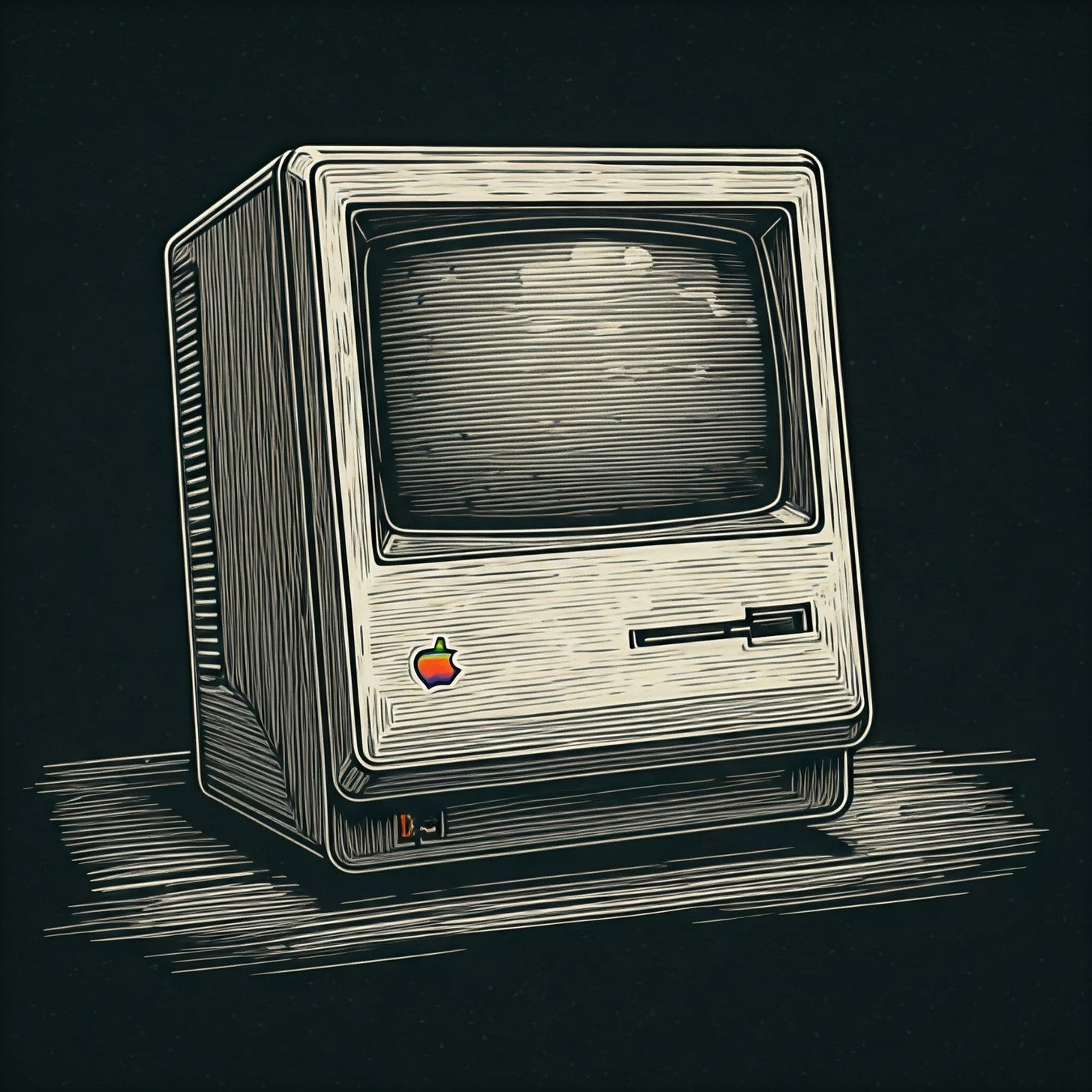🖥️ Teach Computers Before AI: A Sketch
When computer illiterate adults confuse button mashing for knowledge.
Behind the scenes, this summer I've been relentlessly revising three or so big posts. (This not counting conference talks!) Last week I published the first as "Creative Writing Doesn't Exist." While I'm getting ever closer to finishing the others, I wanted to initially publish a preview for paid subscribers.
In 2024 I wrote a post called "Touchscreens Are Intuitive. Word Processors Aren't." Even then it felt like publishing the synopsis, so this summer I've been revisiting the ideas. Even now, this feels like a novella-length idea, but I wanted to just publish my working thoughts. Here's to hoping they become "done" soon!
shiny thingism: (v.) 1. forcing shiny things because they are shiny; 2. following fads and treating toys as tools
Quick! What’s the keyboard shortcut to bolding text? Adding a weblink? Inserting a new blank page? (Answers at the end.)
If you hand a toddler a touchscreen, they learn in seconds. Cause and effect means touch and action. Fingers prove so intuitive, learning curves seem irrelevant. So if you hand a teen a Chromebook, you'd expect them to surf software with easy. After all, they've had computers since kindergarten. Yet they can't.
Many middle schoolers lack computer literacy. Typing essays becomes an ordeal as we spend more time with software than content. Questions about basic navigation and formatting paralyze class. As a quick fix, I created a paint-by-the-numbers workshop over Google Docs, but digital illiteracy remains.
Who do we blame? Three factors stand out:
1. Chromebooks themselves obscure computer literacy by merging the operating system, the browser, and file management. Personal devices therefore serve as better teaching examples, although variability exists here. Regardless, teachers cannot use most school devices as examples.
2. Computer illiterate adults confuse button mashing for knowledge, becoming poor judges of anything computer-based. We can't teach what we don't know. And if adults don't understand computers, they will neither require nor teach certain skills. In these cases, they outright favor no-tech or low-tech.
3. Computer literacy itself exists in no-man's land, used by all but taught by none. For instance, English may favor Word processors and History may favor slides, but without divvied responsibility, nobody holds responsibility. Ironically, devoting time (towards literacy) becomes time off topic.
But the system itself deserves the most blame.
We chase fads without building foundations. We elevate shiny thing-ism and force teachers to use toys as tools just because we bought them. We treat teacher pushback as insubordination, then wish for hindsight when policies fail.
What foundational skills do we ignore?
The desktop metaphor once bridged the digital world. We learned reading, writing, typing, and finally computers. Cursive came before keyboarding. Each represented their own literacy, developed with breathing room. This romanticized view, however, reflects the development of technology.
Today we go 1:1 alongside the ABCs, forcing many literacies at once--and poorly. Schools skip typing and computer apps, mistaking button mashing for knowledge. This results in functional digital illiteracy where basic navigation becomes a deep insight. As with many problems, teachers follow the rules, not make them.
As for AI? Totally shiny thingism. When we teach thinking tools rather than or instead of thinking, its The Shallows all over again. Some aspects of AI will prove to be fads while others won't. Time will sort them out.
Meanwhile, poor computer skills look like poor computer skills, regardless of literacy. Consider a square of good and bad literacies, reading and computers. If you can't read the page, you can't read the screen. Yet if you don't understand computers, you get similar results. (Those with poor print but great computer skills mystify me!)
Fixing this issue requires rethinking core subjects, adding Computers alongside English, Math, History, and Science. This might address hardware and software, operating systems and apps, and basic troubleshooting. Since computers rely on abstractions, this would address physical analogues to the desktop metaphor as well as related thinking skills.
However, this fails with the sheer ubiquity of computing. Linear progressions work on paper, but fail considering we wear computers. Schools can separate these literacies, but reality says they exist as parts in systems. Teaching with some measure of integration might prove inevitable, if only for research against screen time holding things back.
In the meantime, bolding is Control + B, hyperlinks are Control + K, and inserting new pages is Control + Enter…
Update: Here is the first part of the full-length follow up post:






